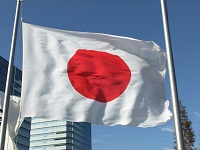Some of the Asia-Pacific region's major countries can expect continued increases in pharmaceutical expenditures during the third quarter, led, surprisingly, by Pakistan.
Pakistan, expected to see a 9.8% growth rate during the period, starts from a relatively low base when compared with the three giant markets of Japan, South Korea and Hong Kong. Those three, in turn, are led by the city quasi-state and its rise rate of 7.4%.
South Korea's growth during the quarter is pegged at 3.2%, outpacing Japan's 2.2% as each country faces its own constraints. The forecasts were made by Business Monitor International in a series of country projections.
Taking the largest market of the four first, those modest Japan percentage increases translate into $92.8 billion in last year's third quarter rising to $94.88 billion this year, all figures in current dollars.
Japan also is struggling with a huge increase in $33 billion annual expenditures for medical and nursing costs for treating a rapidly aging population. BMI credits the expenditure increases to the nation's gaining momentum for generic prescriptions as substitutes for the more expensive branded versions.
 The falling value of the yen may make Japan attractive to foreign companies, but it is a big blow to domestic makers. Yet BMI said Japan remained the most-attractive for the pharmaceutical region, according to its own in-house rating system.
The falling value of the yen may make Japan attractive to foreign companies, but it is a big blow to domestic makers. Yet BMI said Japan remained the most-attractive for the pharmaceutical region, according to its own in-house rating system.
In South Korea, the picture is only a bit better than Japan's as the mainland state across the Sea of Japan as pharma expenditures shift increasingly to the private sector. That is prompted by several price-control mechanisms and other government actions, such as shifting a lot of healthcare costs to consumers.
Using the same current dollars as above, South Korea's drug market in the 2014 third quarter was $15.14 billion and this year expected to reach $15.62 billion.
In Hong Kong, pharma has shown a solid percentage increase. But that growth is largely on the backs of consumers who must rely increasingly on the private sector for care. That accounted for its leadership in dollar totals among the four in the BMI reports.
Hong Kong's 7.4% rise in current-dollar growth is expected to reach $1.67 billion, up from $1.56 billion last year.
Pakistan's forecast could be more iffy, given its geopolitical situation in the middle of a warring part of Asia. That situation threatens to disrupt what otherwise would be a big draw for foreign drugmaker investments.
Pakistan recorded a $2.25 billion drug market expected to reach $2.47 billion this year.
- here are the BMI reports on Japan, South Korea, Hong Kong and Pakistan